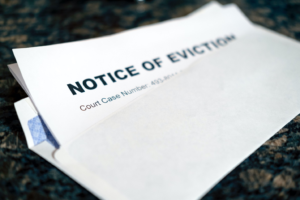
Property rentalsis a big industry in the UK, but it comes with risks. Landlordseffectively assign the use of their property in return for ongoing rental payments but they also expect the property to be respected for the duration of the tenancy. Unfortunately, in some cases, tenants can sometimes find themselves unable to pay, whilst others refuse to pay rent. When that happens, it can place the landlord in an invidious position with their own creditors.
Such a situation can be very stressful for landlords. Here are some steps that a Landlord can take to remedy the situation.
Reach Out to Your Tenants
Before taking any drastic steps, it’s essential to reach out to the tenant(s) to try and identify their circumstances and the reason for why they’ve not met their rental obligation. It’s quite often the case that there’s a valid reason which can be resolved in the short term. In the first instance, refrain from immediate enforcement activity and adopt a sensitive approach until all the facts have been ascertained.
However, in cases where your tenant refuses to engage with the subject then set out the potential consequences of a continued failure to pay the rent, such as a county court judgment and eviction.
Talk to the Guarantor

A guarantor is a person or organization that commits to paying rent or arrears in situations when the tenant is unable to pay it. If your tenant is refusing to pay their rent the next step should be to get in touch with their guarantor since they are legally responsible for meeting any shortfall given their commitment to the agreement which they would have signed on commencement.
Serve a Notice Setting Out the Breach
After having attempted to resolve the situation with the tenant and guarantor through the use of ‘soft’ verbal or written correspondence, it may be time to consider serving a formal notice – which also doubles as the precursor to the terminating the tenancy by way of the county court. Should the tenant’s arrears become excessive and there’s seemingly no constructive dialogue forthcoming to provide the assurance that the tenant will remedy the breach then don’t allow the status quo to continue. It’s at this juncture when ‘time’ really is ‘money’. When the quantum of the arrears reaches at least two months’ rental then serve a section 8 notice, as a minimum, and include the grounds for possession which relate to rent arrears.
Section 8 Notice
This notice operates under section 8 of the Housing Act 1988. The landlord serves this notice to bring to the tenant’s attention that they are now considering formally terminating the tenancy to regain possession of the property should the situation persist and/or is not resolved within the mandatory time frame. All grounds come with a mandatory time frame which must be offered before enforcement can move forward, which, in most cases, provides the tenant with a window of opportunity to remedy the breach. Encouragingly, a section 8 notice can be served and enforced during both the fixed term of the tenancy and any statutory period thereafter. Whilst there are a host of grounds to rely upon when serving a section 8 notice it is most commonly used in the UK for cases relating to rent arrears. The grounds which relates to rent arrears are 10, 11 and the all-important mandatory ground 8.
There are a variety of obligations which befall a landlord if they are to successfully enforce a section 8 notice, so it’s incumbent on a landlord to understand and fulfil these obligations otherwise it may impair their chances of securing a favorable outcome should there be a need to progress the matter by way of the county court.Under no circumstances should a landlord attempt to enforce the recovery of rent arrears and/or eviction without engaging the procedure set out in law. Failure to do so could result in a claim against them for harassment or unlawful eviction. If proven, a punitive penalty may be levied and they will be no further forward in resolving the situation with the tenant.
Section 21 Notice
This notice is also known as the ‘Notice to Quit’ and is issued by the landlord if he wishes to regain possession of the property no earlier than the end of the fixed term of tenancy. This notice doesn’t set out any specific breaches of the agreements or require any reason to terminate the tenancy, although the time frame before enforcement can move forward is significantly longer than a section 8 notice. It is commonly referred to as a non-fault notice as any judgment which stems from this notice does not publicly reflect the conduct of the tenant.
Again, there are a host of requirements which a landlord must have fulfilled during the operation of the tenancy for this notice to be enforceable and secure a favorable outcome by way of the county court. Examples include, but are not limited to,protecting their deposit within the mandated time frame, ensuring there are valid gas certificates for the duration of the tenancy and served on the tenant, provision of the Government’s Guide on How to Rent, and more!
Take It to Court
If serving a notice did not yield the requested rental payments or a voluntary surrender of the tenancy then filing a claim for possession with the county court under whose jurisdiction the property falls is ultimately the next step. This should be considered a last resort when all attempts at constructive dialogue have failed. Provided it can be demonstrated in law that the requirements for terminating the tenancy have been met then a court has the power to order the tenant to leave the property and, if applicable, pay the outstanding rent and legal costs. It’s essential to understand that a Judgment alone doesn’t force a tenant to leave the property or satisfy the Judgment. The Judgment merely provides the basis by which a court approved bailiff can then be instructed to attend the property and remove the tenant and/or seek to recover what is owed, as explicitly set out in the court Judgment.
Again, it’s stressed, that if a Landlord fails to follow this procedure to the letter and decides to undertake enforcement activity in person directly with the tenant then they could be subject to a claim for harassment or unlawful eviction from the tenant. The penalties which a court can levy against a Landlord can be significant; they can even face a penal sentence in extreme circumstances.
If all this seems overwhelming, don’t worry -we’ve got it all covered. Landlord Assist specialises in disputes between a Landlord and a Tenant. Our advisers are highly experienced in tenant eviction and Rent arrears expert UK, and is committed to helping our clients resolve these situations through lawful means. Reach out to us today on 01843 223223 or info@landlordassist.co.uk to hear how our services can help.






